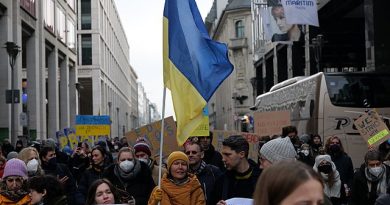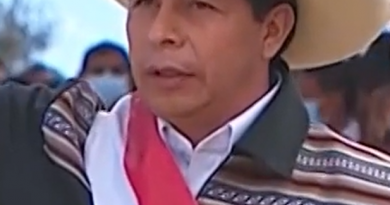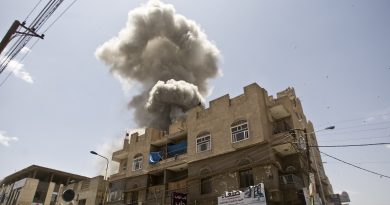Ebola Spreads in the Congo Amidst Rising Ethnic Tensions
By Jarrett Dang
Staff Writer
Joseph Kabila, the current president of The Democratic Republic of the Congo (DRC), took power in 2001 after his father and former president, Laurent-Désiré Kabila, was shot by his own bodyguard.
Since then, Kabila has done nothing to raise his country out of the dirt. Kabila, who was supposed to step down in 2016, continues to stay on as president even though the constitution mandated his departure. As a result, his grip over the country has diminished significantly and violence has resurged.
Fighting is rife in the DRC, with 10 out of its 26 provinces embroiled in civil conflict. Eastern Congo is one of the deadliest conflict zones in the world, with fighting so bad that the country hosts the largest United Nations peacekeeping mission ever assembled, reports the UN.
Along with the areas of violence, there is also a new outbreak of Ebola in the North Kivu province in the Eastern Congo, where some of the worst fighting is taking place, and presents the direst conditions for Congolese citizens and health workers. The country is on the brink of collapse as Joseph Kabila clings to power amidst a growing an ethnic conflict. As a result, a coordinated response to the latest Ebola outbreak seems much harder.
The World Health Organization (WHO), armed with a new Ebola vaccine which has proven its worth in West Africa, has been trying to inoculate those most susceptible for contracting the disease in North Kivu.
In October, the WHO reported 181 total cases of Ebola in North Kivu and 115 total deaths in the latest outbreak. Getting the vaccine to all of those affected has been a monumental task as security in the region is nearly non-existent, reports The Economist. Government forces have long vied with ethnic rebel groups for control of Eastern Congo, and UN peacekeepers are spread thin. Mike Ryan of WHO stated to the Economist that, “we are dealing with security problems, a weak health system, and disease. We have to balance access with security all the time.”
Health workers trying to deliver vaccines and prevent the spread of the disease are at risk of injury or even death. The Associated Press reports that on October 2, three health workers were burying an Ebola victim when residents of a nearby village attacked them. Two of the three were seriously injured and the international community made renewed calls to stop the violence.
The UN Security Council said that it sought an immediate end to the hostilities, while the NGO Human Rights Watch called for investigations into massacres in Ebola-infected areas.
Such violence perpetrated against health workers discourages international aid agencies and other nations from sending help where it is most needed.
The Red Cross ordered its volunteers to halt burying Ebola victims in conflict zones. This means the work that needs to be done to stop the spread of the disease is not happening, reported the Associated Press. Ebola still remains a threat to many communities in the Congo, and the mismanagement of the state by Joseph Kabila has exacerbated the crisis.
International aid agencies, working with local health agencies, should ramp up their current efforts to inoculate as many as possible against Ebola while treating those already infected with the disease.
The Congo narrowly avoided disaster the last time Ebola came to the country; it may not be so lucky this time should the political situation in the country worsen. Wealthy nations like the United States and others should invest additional resources in combatting the Congolese Ebola outbreak.
According to Foreign Affairs, the 2014 Ebola outbreak in West Africa was contained largely thanks to American-led intervention. The United States should embrace a similarly strong role in the DRC.
The United Nations, along with powers like the United States and China, should apply pressure on Kabila to resign and to hold free and fair elections. The democratization of the Congo would bring about a semblance of civic unity and would decrease ethnic violence in the country.
This would allow for a much easier treatment of Ebola in the country and would stabilize central Africa as a whole. Allowing Ebola to spread unchecked in the Congo could cause subsequent outbreaks in neighboring countries and present the world with another potential pandemic.



